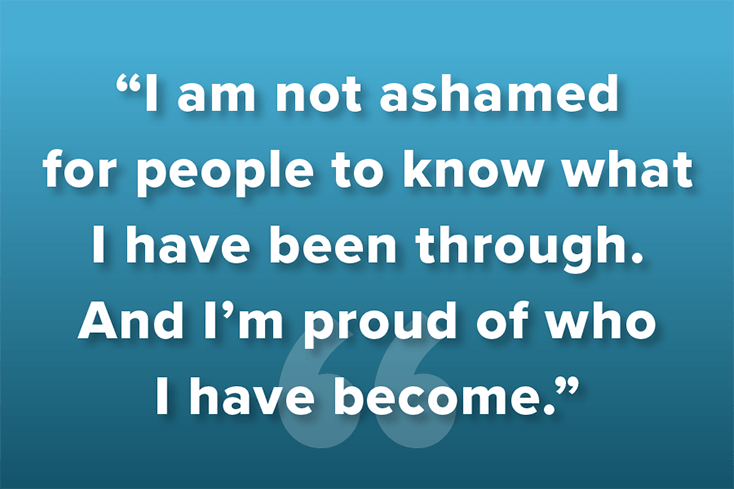May 04, 2023
By Jesslyn McCutcheon

At the age of 23, I could no longer get out of bed in the mornings and put my feet on the ground without feeling I had heavy weights around my ankles. I could barely drag myself to the bathroom. I had no idea what was happening. After a month of not getting out of bed, I moved back home with my parents, where my depressive state worsened and I attempted suicide.
For the next three years, I was hospitalized on more than one occasion; I saw doctor after doctor, therapist after therapist, took medication after medication, received a series of ECT shock therapy treatments to address the almost catatonic state that I was in. Finally, at the age of 26, I received a diagnosis of bipolar 1 disorder. I felt a sense of relief to finally know what was “wrong” with me.
For the past two decades, I have been living with bipolar 1 disorder — a mental health condition that I will battle for the rest of my life. Mental illness, particularly serious mental illness (SMI) is not a "quick fix" — it is an ongoing journey. My bipolar diagnosis will be a constant presence in my life. One thing this illness will not do, however, is define the person that I am today. I am not ashamed for people to know what I have been through. And I’m proud of who I have become.
I am a college graduate, I am a wife, a full-time mother to three beautiful girls who are 16, 12 and 9 years old. I work full-time in the supply chain field. My life is enriching and fulfilling due to my spiritual beliefs, the medical treatment plan I follow and the education and research I consult to stay well. I have defied many of the limiting assumptions people may have about my potential and ability.
While I have found self-love and confidence, I worry about others grappling with mental health conditions. Mental illness should not be treated any differently from physical illness — but it is. Due to the stigma surrounding mental illness, people living with mental health challenges face unfair assumptions, negative attitudes and unpleasant stereotypes. I have experienced this firsthand. My hope for the future is that we can advance the conversation about mental health and squash the stigma that limits us.
A crucial part of changing the narrative is understanding that properly addressing mental health takes time and patience. Many people living with mental illness in our communities are suffering in silence, plagued by the stigma of disclosing our challenges and asking for help. But this can change; we have the power to come together and raise awareness through sharing our lived experience.
For many years, as I pursued recovery, people gave to me. It's my turn to do the same for others who are fighting their own battles. Dr. Martin Luther King Jr. famously said, "Darkness cannot drive out darkness. Hate cannot drive out hate, only love can do that." Let's continue to be guided by love as we address mental health issues in this country.
Submit To The NAMI Blog
We’re always accepting submissions to the NAMI Blog! We feature the latest research, stories of recovery, ways to end stigma and strategies for living well with mental illness. Most importantly: We feature your voices.
LEARN MORE